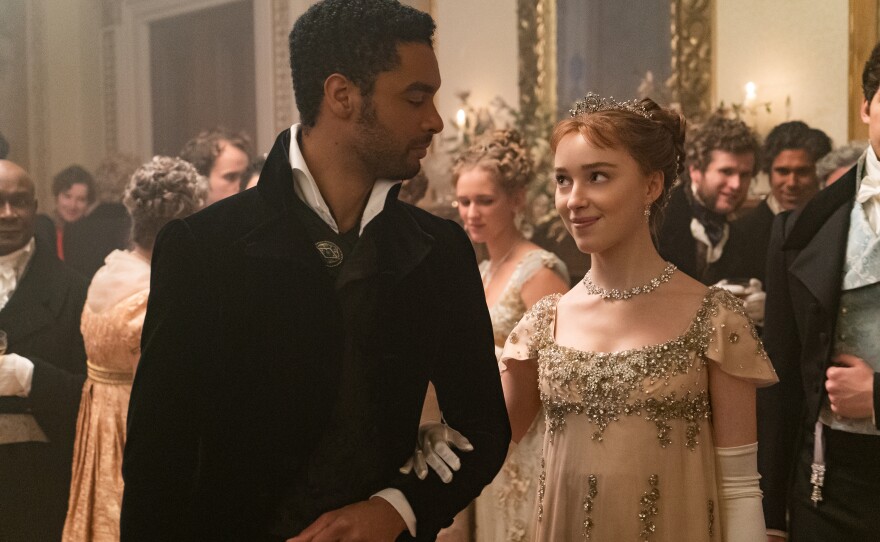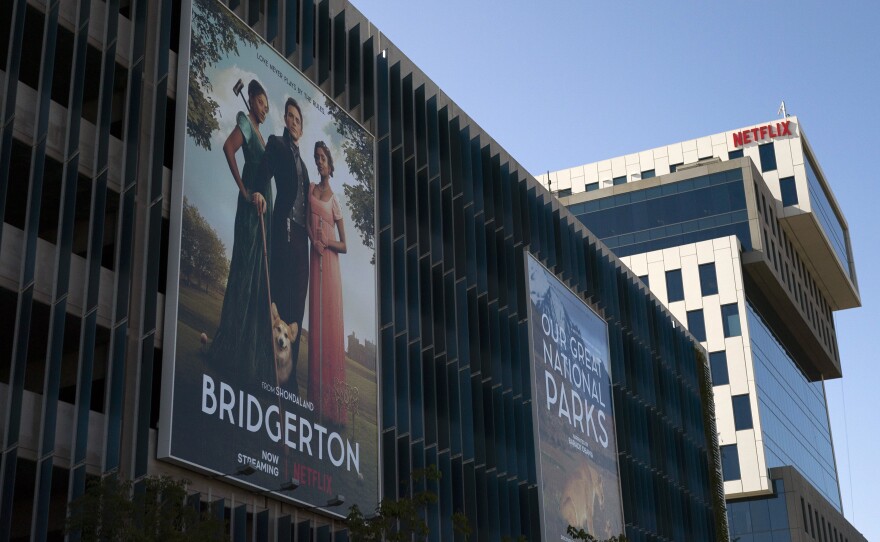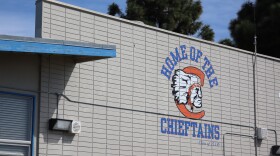For musical theater fans and romance novel lovers, the news was shocking: Netflix is suing Abigail Barlow and Emily Bear, the duo behind the Grammy-winning Unofficial Bridgerton Musical, for "blatant infringement of intellectual property rights."
The Unofficial Bridgerton Musical, inspired by the Netflix show and book series by Julia Quinn, began on TikTok in early 2021 and was released as an album in September 2021, with 15 songs performed by Barlow and Bear. The duo won the 2022 Grammy Award for best musical theater album.
Last week's news left many fans with questions about the lawsuit, the future of the musical, and what it all means.
What does the lawsuit allege?
On July 29, Netflix filed a lawsuit in U.S. District Court in Washington, D.C., alleging that Barlow and Bear have "taken valuable intellectual property from the Netflix original series Bridgerton to build an international brand for themselves."
"Netflix owns the exclusive right to create Bridgerton songs, musicals, or any other derivative works based on Bridgerton," the lawsuit says.
Netflix alleges that Barlow and Bear have claimed "carte blanche authorization to profit from Netflix's protected intellectual property" and stretched the boundaries of fan fiction "well past its breaking point."
The lawsuit cites specific instances where Barlow and Bear allegedly "copied liberally and nearly identically from Bridgerton across a number of original elements of expression," including lifting lines of dialogue from the show, "appropriating" characters, and "copying" key plot points.

According to the lawsuit, Netflix has never authorized The Unofficial Bridgerton Musical or given Barlow and Bear permission to create work based on the franchise.
In the past, Barlow and Bear have said that they received Netflix's permission. In a September 2021 interview, Barlow said Netflix was "very, very supportive" of their project.
Barlow and Bear have not responded to NPR's request for an interview and have not publicly commented on the lawsuit.
Why is Netflix just suing Barlow and Bear now?
The Unofficial Bridgerton Musical album was released almost a year ago. But the lawsuit was filed last week.
"The dynamic has shifted where the value that was accruing for the Bridgerton brand and Netflix from [the musical] is now outweighed by the money Netflix thinks they're losing," Derek Miller, an English professor at Harvard University, tells NPR.

The catalyst for the lawsuit was The Unofficial Bridgerton Musical Album Live in Concert, a for-profit show at the Kennedy Center on July 26.
When the concept album was announced, according to the lawsuit, Netflix decided not to stand in the way of "what Barlow & Bear represented as two Bridgerton fans' expression of their appreciation for the series."
The album drummed up excitement for Netflix without impinging on its business model, says Miller, who focuses on the intersections of art and law. Now that Barlow and Bear have begun staging for-profit performances, Netflix sees the musical as a threat to their own live event, "The Queen's Ball: A Bridgerton Experience."
Netflix representatives allegedly told Barlow and Bear that they "would not authorize and did not want them to engage in any live performances or other derivative works that might compete with Netflix's own planned live events."
According to court documents, Netflix "offered Barlow & Bear a license that would allow them to proceed with their scheduled live performances at the Kennedy Center and Royal Albert Hall, continue distributing their album, and perform their Bridgerton-inspired songs live as part of larger programs going forward," which the lawsuit says Barlow and Bear refused.
How could the lawsuit play out?
It's still too early to predict the end result of the lawsuit, Rebecca Tushnet, a professor at Harvard Law School, tells NPR. There's a range of possible outcomes, and most cases like this tend to settle out of court.
Miller, the literature professor, says that since there's ample evidence Barlow and Bear did infringe on Netflix's intellectual property, he doesn't think they will want to go to court. If the case does go to court, the decision will come down to whether the Unofficial Bridgerton Musical is deemed fair use.
Fan fiction can be protected under fair use as long as the work is "transformative" and adds new meaning to the original work. Fan fiction must also be noncommercial in nature and cannot result in profit for the creator of the work.
In a fair use case, Tushnet says, several factors are considered, including the purpose of the use, the nature of the work that was copied, the amount of original material taken, and the impact on the market.
"There are commercial fair uses, but it's definitely more risky," Tushnet says, adding that they require more justification. "Plenty of justifications can be found, from criticism, commentary, even imaginative reworkings that tell you something about the source text. The more critical [of the source text] a commercial reworking is, the more likely it is to be found to be fair use."
What lies ahead for 'The Unofficial Bridgerton Musical'?
Depending on how the case ends up, a Bridgerton musical still might make it to Broadway.
If the case settles somewhat amiably, Netflix may choose to use Barlow and Bear's work as its foray into theater. But, Netflix may also not want to work with Barlow and Bear in any capacity once the lawsuit is settled, regardless of the outcome.
"There's a lot of points made in the claims that suggest that there were some serious breaches of trust by Barlow and Bear's representatives with Netflix," Miller says.
Barlow and Bear could potentially rewrite the show to remove intellectual property belonging to Bridgerton, but they would have to dramatically alter the show's plot and lose the Bridgerton brand that attracted people.
Creative projects have second acts all the time, Tushnet says, citing 2002's Mattel, Inc. v. MCA Records, when the toy manufacturer lost a lawsuit against the band Aqua over the song "Barbie Girl," then later ended up licensing the song for their own marketing.
What could this mean for fan fiction overall?
"Fan culture is extremely good for brands," Miller says. Corporations are going to have to strike a balance between protecting their economic and business interests and not "picking fights with fans making work that to some extent extends the value of the brand."
Part of the motivation behind the lawsuit may be to shut down other potential fan projects based on Netflix's extensive catalog.
The lawsuit alleges that The Unofficial Bridgerton Musical "may also encourage other third parties to develop derivative works based on Bridgerton without Netflix's authorization."
"The average work of fan fiction does not take all that much from the existing work," Tushnet says. Even if a copyright owner decides a work of fan fiction infringes on their intellectual property, they may decide it's simply not worth it to pursue legal action.
Copyright 2022 NPR. To see more, visit https://www.npr.org. 9(MDAzMjM2NDYzMDEyMzc1Njk5NjAxNzY3OQ001))





